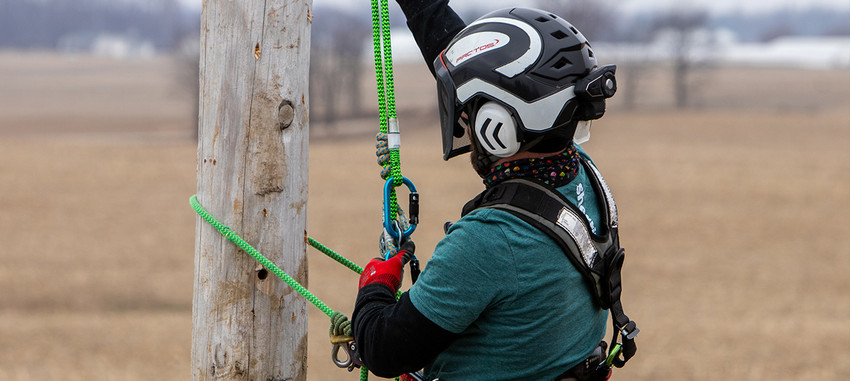TFTC #30 Competition Climbing With Derrick Martin: Part 2
Sherrilltree Aug 5th 2021- You recently competed at the NAOM event that took place in Williamsburg, VA. What is NAOM like?
- NAOM is a really unique competition. Chris Coates designed it so that everybody gets to run a simulated masters’ climb instead of a work climb during the prelims. It’s very unique, and shows an overall skill level rather than breaking things down into each category. It’s a cool competition!
There’s a downside as well—a lot of sitting between events, so you have to learn how to relax, hydrate, keep your nutrition up, and then warm up before your event begins. Otherwise it’s a cool competition to be a part of.
I’ve really appreciated the independent competitions that are still running so that I can get out there and climb with other good climbers. It’s like we were saying about contract climbing, that we don’t have many people that we run into that can push us—competitions do that! We can go specifically to push ourselves, and to see where we stack up with others.
I highly recommend competing to anyone that wants to push themselves. Don’t go to try to win every one; you’ll only end up disappointed. I’ve never gone to a competition thinking, “I’m going to win this baby!” and came out satisfied. You never hit it perfectly, so going in to have fun and push your own limit is the best way to approach competition.
“A competition really lets you see where you’re at. Every time I go I focus on how I can do better than last time, not how I can beat so-and-so, or what place I come in.”
- You mentioned getting warmed up before an event. How did you warm up?
- I do some exercises to get the blood pumping and the body moving; definitely some stretching as well to make sure I don’t pull any muscles or get injured. Then I put some music on and dance around a little bit. It looks a little funny, but I find it works for me; it gets my energy up.
We do a lot of rope pulling, so I warm up my shoulders with stretches I got from physical therapy while I was recovering from an injury. Another thing I concentrate on is legs, including hip flexors. One thing I didn’t do but should have is cool downs. If you think about it, I only climbed for like twenty or thirty minutes, but was so drained after the first day. Usually I can climb for six hours in a day.
- You already touched on this, but let’s go further—what needs to happen for someone to walk away from a competition and know that it was a win?
- Bettering yourself from your last one. The other day my son had a skills competition, and he was upset because some of the other kids beat him. I told him, “It’s not about how you compare to others; it’s how you’re improving yourself.”
A competition really lets you see where you’re at. Every time I go I focus on how I can do better than last time, not how I can beat so-and-so, or what place I come in. Did I set forth a plan and execute it efficiently and to a point where I can say, “yes, that’s what I wanted to do”—that’s a successful event.
- What is one thing that you’ve taken with you to the field from competing?
- Absolutely the throwball. The sooner you can get in the tree and the sooner you can get to climbing, the more productive you are.
- Thanks, Derrick, for taking the time to talk to us!

